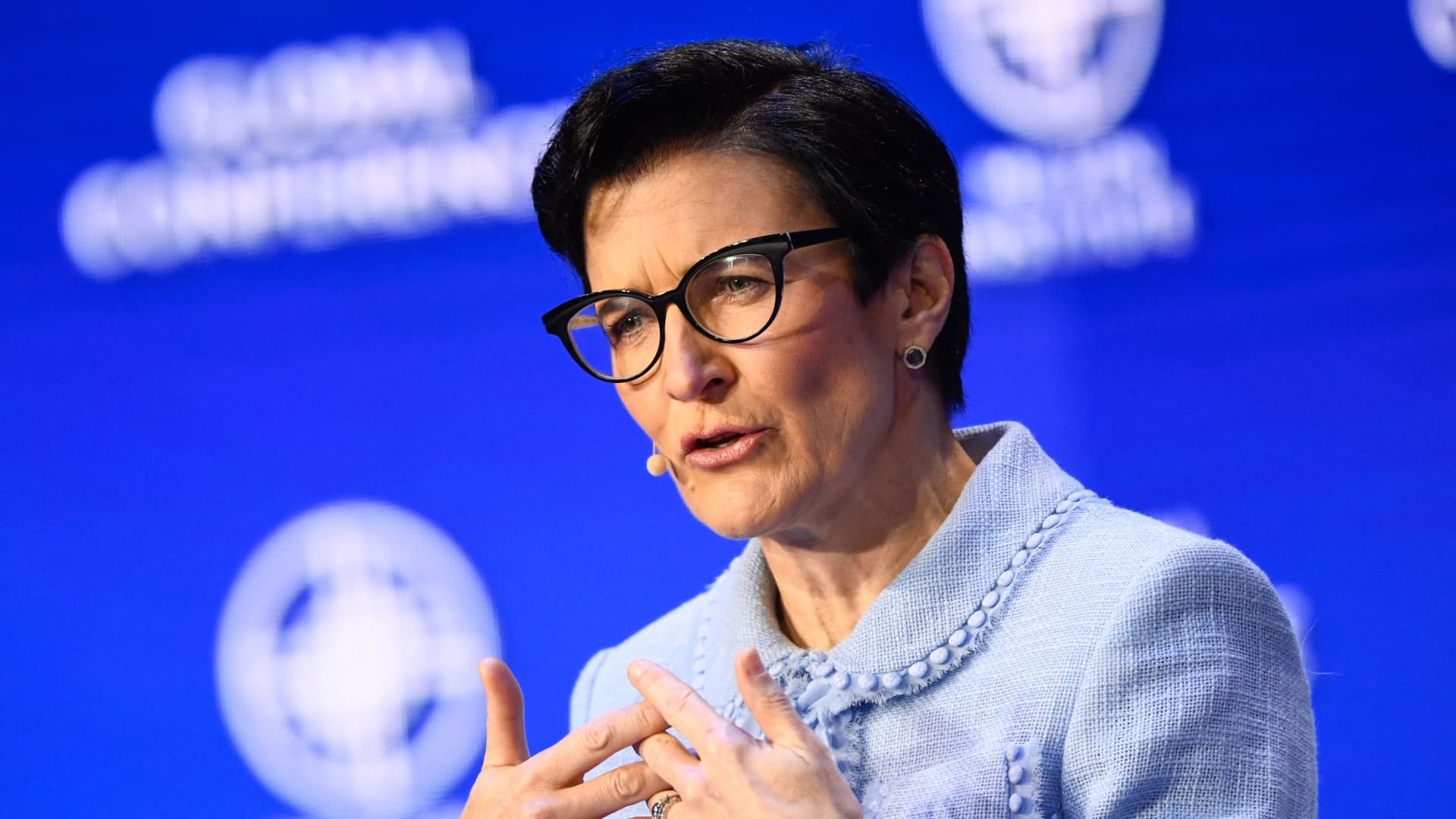
Citigroup CEO Jane Fraser has told CNBC she is convinced Europe is headed into a recession.
Speaking at the World Economic Forum Monday, Fraser said that a confluence of factors, including the war in Ukraine and resulting energy crisis, have left Europe vulnerable to a sizeable downturn even as other parts of the world show some signs of resilience.
“Europe is right in the middle of the storms from supply chains, from the energy crisis, and obviously just the proximity to some of the atrocities that are occurring in Ukraine,” she told Geoff Cutmore.
Asked if those factors left her convinced that Europe will experience a recession, Fraser said: “Yes.”
European energy costs have soared in recent months amid Russian sanctions, while a broader surge in inflation is fueling a cost-of-living crisis.
The Wall Street chief did not give a timeline for the downturn. However, her October 2021 prediction of a “brutal winter” for markets proved largely accurate, with stock markets embarking on a major sell-off in early 2022 with losses extending to today.
The U.S., which has so far demonstrated “more resiliency” in the economy, the labor market and among consumers, may yet skirt a recession, Fraser said. Still, much depends on how the Federal Reserve conducts its rate hiking strategy as inflation soars ever higher.
“There’s some buffer there,” she said. “To be seen if it’s used wisely or not.”
Asia, meanwhile, is recovering well from the Covid-19 pandemic, and demonstrating “a sense of optimism,” she said.
Fraser was speaking on a panel entitled the “Global Economic Outlook,” in which she was joined by Francois Villeroy de Galhau, governor of the Central Bank of France and a European Central Bank policymaker.
Villeroy de Galhau said he would “disagree” with Fraser’s prognosis for the European economy, describing it instead as “resilient.”
“The main problem, at least in the short run, is inflation,” he said. “This is why we have to normalize monetary policy.”
The ECB on Friday gave its strongest indication yet that it will soon begin hiking interest rates — potentially in July — with market players now pointing to at least four rate hikes before the end of the year.
The ECB has long been resistant to rate hikes, insisting that price pressures would diminish in the second half of the year.
Euro zone inflation hit a record high for the sixth consecutive month in April as the ongoing war in Ukraine and subsequent impact on Europe’s energy supply weighed on the region’s economy.




